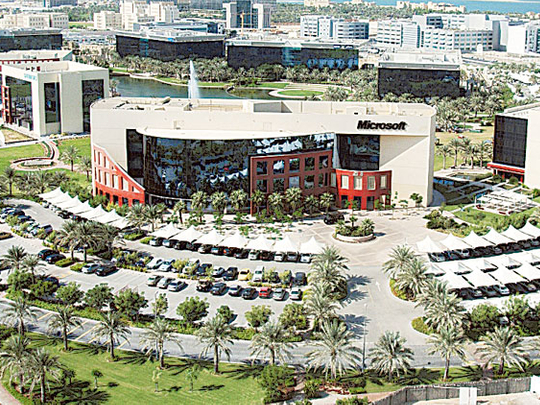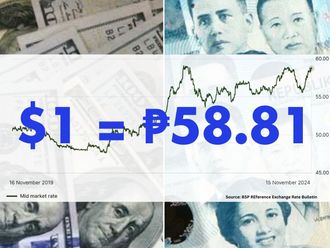
Abu Dhabi: Foreign direct investment (FDI) inflow to the UAE, West Asia’s third largest recipient country, increased by 25 per cent, to $9.6 billion, continuing a recovery initiated in 2010 but remaining below the level of $14 billion that was reached in 2007, the latest report by United Nations Conference on Trade and Development (Unctad) reveals.
The report, which is subtitled Global Value Chains: Investment and Trade for Development, was released on Wednesday by the Geneva-based Unctad.
Despite the strong decline registered in Saudi Arabia, FDI to Gulf Cooperation Council (GCC) countries as a whole remained at almost the same level in 2012 ($26 billion), because of significant FDI growth in all other countries within the group.
FDI inflows to West Asia in 2012 continued a downward turn that began in 2009, Unctad’s World Investment Report 20131 reveals. FDI to the West Asia region decreased by 4 per cent in 2012 to $47 billion, half the level of 2008.
“High public spending by Abu Dhabi and a strong performance by Dubai’s non-hydrocarbon sectors helped rebuild foreign appetites for FDI in that country.
Saudi Arabia and the UAE alone accounted for 83 per cent of FDI inflows to the GCC economies. FDI to Kuwait more than doubled, reaching $1.9 billion. FDI inflows also increased in Bahrain, Oman and Qatar,” the report says.
FDI to non-GCC countries in West Asia declined by 9 per cent to $21 billion, due especially to the large drop in FDI to Turkey. Lower global growth and a prolonged fiscal tightening in the European Union — Turkey’s largest market — have reduced demand for Turkey’s exports, thus affecting export-led FDI, the report indicates.
However, most countries in the non-GCC group saw an increase in FDI inflows, the report reveals. This was the case for Iraq, where FDI in 2012 was up for the second consecutive year, increasing by 22 per cent to $2.6 billion, attracted by the country’s strong economic growth (8.4 per cent) which has been aided by significant increases in government spending. With its considerable hydrocarbon wealth, large population, and massive infrastructure investment needs, Iraq offers a wide range of opportunities for foreign investors, who are progressively investing despite the country’s political instability and security challenges, the report says.
Lebanon also registered positive FDI growth (9 per cent), enhanced by foreign acquisitions in the insurance industry and in services related to real estate.
FDI to Yemen swung back from a negative to a positive value in 2012 ($349 million), as investors were encouraged by the settlement of that country’s political crisis, while FDI to Jordan declined by 5 per cent, the report says.
Outward FDI from West Asia decreased by 9 per cent to $24 billion in 2012, putting a halt to the previous year’s recovery, the report notes. While GCC countries continued to account for most of the region’s outward FDI flows, Turkey emerged as a significant investor too, with the amount of its outward investment growing by 74 per cent to a record $4.1 billion.












